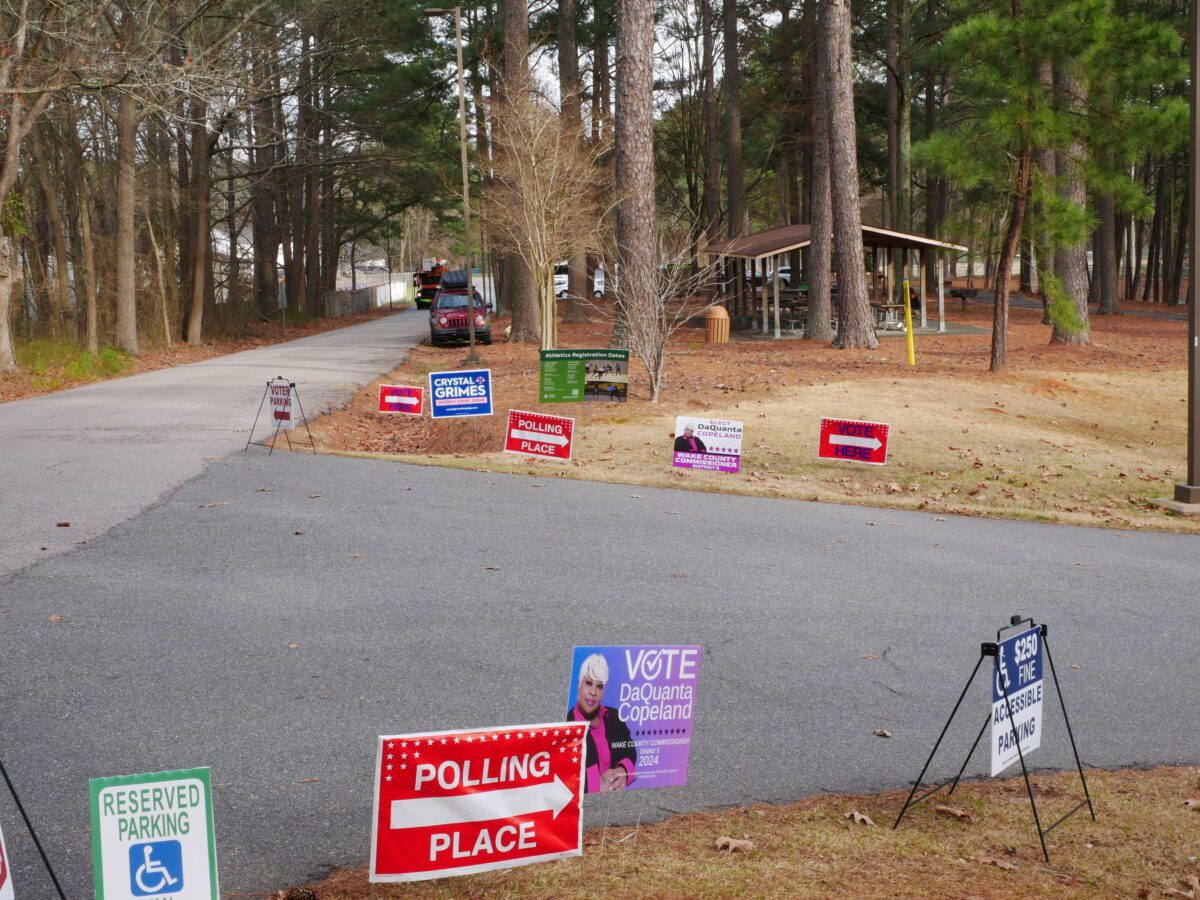

|
|
As a seasoned veteran in the field of education, having dedicated two decades of my life in service to North Carolina Public Schools shaping young minds and fostering academic excellence, I’ve witnessed firsthand the transformative power of effective leadership on our school systems at a local, state, and national level.
It has been my great privilege to serve as a public school principal since 2010 and an honor to have been recognized as the 2023 Wells Fargo NC Principal of the Year.
I believe that servant leadership in education comes with a great responsibility — not just to the students and educators within my school, but to all students, educators, and school communities across our great state of North Carolina.
In recent years, local, state, and national politics have become increasingly polarized, with divisions running deeper than ever before. In such an environment, it’s all too easy for partisan agendas and loyalty to party versus the stance of specific candidates on educational issues to overshadow the needs of our students and the integrity of our educational system.
I believe that the best interest of students should not be a red or blue issue but rather both parties working together for the best interest of all.
I take a firm stance that education should be purple; the mix of red and blue ideals where the answer should center around this question “What is best for all North Carolina students regardless of zip code?”
Nowhere should this mindset be more prevalent to North Carolina voters than in the selection of key educational leadership positions, such as the position of state superintendent of public instruction.
The role of state superintendent in shaping education policy and allocating resources is immense.
These individuals hold the power to influence curriculum standards, school funding, teacher salaries, and much more — all of which directly impact the quality of education received by students in every corner of our state.
Therefore, it is imperative that the selection process for these positions be viewed by voters through a purple lens, prioritizing the best interests of all students above aligning solely to one voting party.
Education is not a partisan issue; it is a fundamental right and the cornerstone of a thriving society. In North Carolina, our state constitution states: “The people have a right to the privilege of education, and it is the duty of the State to guard and maintain that right.”
Whether a student resides in a rural community or an urban center, whether they come from a family of modest means or privilege, they all deserve access to a high-quality public education that empowers them to reach their full potential.
By maintaining this mindset in the selection of educational leaders, we can ensure that decisions are made with the input of diverse perspectives and with a commitment to equity and excellence for all students, regardless of their zip code in our state.
We need to foster collaboration and consensus-building, essential components for enacting meaningful and sustainable change in our educational system. When leaders from across the political spectrum come together to tackle the challenges facing our schools, they are better equipped to find innovative solutions and navigate complex issues with nuance and pragmatism.
Of course, working together is no easy feat, especially in today’s highly polarized political climate. It requires a willingness by all voters to prioritize the common good over partisan interests, to listen to differing viewpoints with respect and open-mindedness, and to seek compromise when necessary for the greater benefit of our students.
Eight out of 10 students in North Carolina attend a public school, and they deserve this from each of us.
As educators and advocates for our students, we must actively engage in efforts to preserve a purple view of voting when it comes to educational leadership. This means holding our elected officials accountable for their commitment to education and advocating for policies that prioritize success for each and every student above political ideology. It is imperative that we actively participate in the democratic process by casting informed votes in elections versus only voting by party without a purple mindset when it comes to education.
Ultimately, the future of our state depends on the strength of our educational system and the opportunities it affords to every student. By safeguarding purple versus straight-party voting ideals in the selection of educational leaders, we can ensure that North Carolina remains a beacon of excellence in education, where every child has the chance to thrive and succeed, regardless of the political climate.
Let us rise united above partisan divisions in our commitment to providing the best possible education for the students of North Carolina public schools. The children in our Old North State deserve nothing less.




